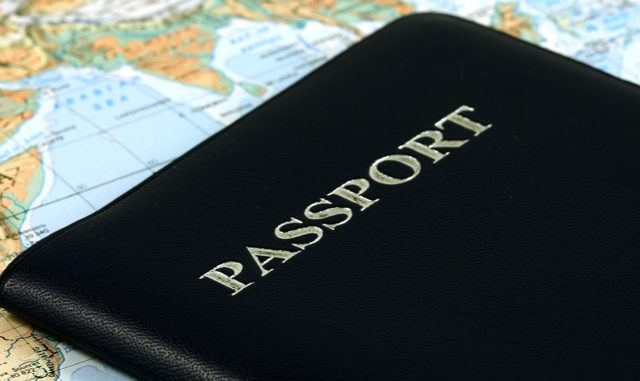
Several Arizona lawmakers are sponsoring legislation that would create new requirements for those who wish to register to vote and would change which registered voters can receive mail-in ballots.
House Bill 2492 seeks to add several statutes pertaining to voter registration and what election contests certain voters are eligible to cast a ballot in.
Currently, someone wishing to register to vote in Arizona must be a U.S. citizen and a resident of the state for the 29 days preceding the election. A person who submits valid proof of citizenship with a completed voter registration form to their local county recorder is entitled to vote in all federal, state, county and local elections in which he or she is otherwise eligible.
However, a person who is otherwise eligible to vote in Arizona but has not submitted proof of citizenship is allowed to vote in federal elections, becoming known as a “federal-only” voter. Public records show more than 11,600 federal-only ballots were cast in Arizona’s 2020 General Election.
HB2492 would make several changes to Arizona’s election laws related to federal-only voters, including a provision mandating current federal-only voters cast their ballots in-person (early or on election day). The use of mail-in ballots would be prohibited.
In addition, Arizonans designated as federal-only voters would be prohibited from voting in presidential elections.
But the biggest changes under HB2492 involve the citizenship of persons registering to vote. A voter registration form or application must now contain a checkmark or other appropriate mark in the “YES” box next to the question of citizenship; an application without YES marked must be rejected.
However, simply marking YES would not guarantee approval of a new voter registration under HB2492. Instead, it creates two methods for what actions a county recorder or other election official must undertake before adding the registrant to the voter rolls.
First, if the voter registration form is one prescribed by the U.S. Election Assistance Commission, then the county recorder would have 10 days per HB2492 to verify the registrant’s citizenship via various state and federal government databases. Those databases belong to agencies such as Arizona Department of Transportation. U.S. Social Security Administration, and U.S. Citizenship and Immigration Services.
If citizenship cannot be confirmed, the registrant would be notified and given 30 days to submit proof of citizenship. After that period, the registrant would be approved to vote in non-presidential federal contests only, provided the registrant meets all other requirements.
But if a county recorder obtains proof the registrant is conclusively not a U.S. citizen, the entire voter registration form would be rejected, and the local county attorney and Arizona Attorney General notified for further investigation.
The second HB2492 citizenship provision addresses applications for voter registration which do not use a U.S. Election Assistance Commission form. In those instances, HB2492 mandates proof of citizenship be included with whatever voter registration form is submitted.
A county recorder would then be required to reject an application or form that does not include proof of citizenship or insufficient proof as defined in HB2492. .
If HB2492 is enacted, a county recorder or other election official who fails to adequately perform any provision of the new laws could be prosecuted for one or more Class 6 felonies.
Citizenship is not the only new requirement addressed by HB2492 for persons wishing to register to vote in Arizona.
Under the bill, anyone wishing to register to vote would also have to include their place of birth on the application and also provide “satisfactory proof” of the location of residence at the time of registration.
Such proof of location of residence would be documents which contain the same name and address as that provided by the registrant, including but not limited to a valid Arizona driver license, an Arizona nonoperating identification license, a tribal enrollment card or other form of tribal identification or a United States federal, state or local government issued identification.
Some other documents which could be presented include utility bills, bank or credit union statements dated within 90 days, a valid Arizona vehicle registration, an Arizona vehicle insurance card, an Indian census card, a property tax statement, and a recorder’s certificate.
The provisions of HB2492 would not apply to an absent uniformed services voter or overseas voter as defined by the Uniformed and Overseas Citizens Absentee Voting Act (UOCAVA).
